August 26, 2021 at 17:00 (Tashkent time) within the framework of the Annual Meeting of the Islamic Development Bank (IsDB) Group in Uzbekistan "Respond, restore, restart", an online webinar will be held on the topic: "Is the decade of action to deliver the SDGs in jeopardy?"
Speaker’s list of the event: Dr. Muhammad Al Jasser, IsDB President, Dr. Rami Ahmad, Special Envoy on SDGs and Senior Advisor to the President, Islamic Development Bank, Ms. Amina J. Mohammed, United Nations (UN) Deputy Secretary General and Chair of the UN Sustainable Development Group, Prof. Jeffrey D. Sachs, Director, Center for Sustainable Development, Columbia University, Dr. Mahmoud Mohieldin, Executive Director at the International Monetary Fund and Former UN Special Envoy on Financing the 2030 Agenda for Sustainable Development, Dr. Obid Khakimov, Center for Economic Research and Reforms, Office of the President of the Republic of Uzbekistan, Dr. Ir. Arifin Rudiyanto, Deputy Minister for Maritime and Natural Resources Affairs, Ministry of National Development Planning, the Republic of Indonesia, Mr. Ahmed M. Saeed, Vice President, Operations (East Asia, Southeast Asia and the Pacific), Asian Development Bank, Ms. Jana El Baba, Sustainable Development Officer, UN Economic and Social Commission for Western Asia, Dr. Kevin P. Gallagher, Director, Global Development Policy Center, Boston University, Dr. Mansur Muhtar, Vice President, Country Operations, Islamic Development Bank.
Uzbekistan at the international expert platform will be represented by the director of the Center for Economic Research and Reforms (CERR) under the Administration of the President of the Republic of Uzbekistan, Dr. Obid Khakimov.
He will talk about the role of Uzbekistan in achieving sustainable development goals and problems in terms of understanding the implementation mechanisms, the distribution of responsibility and management.
Implementation of the SDGs in Uzbekistan coincided with an ambitious program of economic and social reform. Thanks to the comprehensive and structural reforms carried out in the country in recent years, Uzbekistan has seen significant progress towards achieving almost all of the SDGs.
Key Issues to be addressed:
- What’s the current outlook on the implementation of the 2030 Agenda for Sustainable Development? Before the pandemic, we were already not on track, how further away from the achievement of the goals are we because of the effects of the pandemic?
- Which of the SDGs have been impacted the most because of the pandemic? What types of bold actions are needed in order to put these back on track?
- What should the MDBs be focusing on in order to make the most impact towards achieving the severely affected SDGs? Can we talk about the same focus areas as those before the pandemic, or do we need a shift in focus?
- What types of concrete actions should be taken to reduce the financing gap for the SDGs? What can be done to accelerate the engagement of the private sector?
- What does development cooperation to achieve the SDGs look like after the pandemic? Do we go back to business-as-usual on this front?
To participate in the event, experts, analytical and scientific circles, the teaching staff of the country's leading universities, as well as representatives of the official and business circles and the media are invited.
You can take part in the event by following the link
For reference: To assess the achievement of the SDGs, a special Sustainable Development Goals Index (SDG Index) was created. The government monitors the effectiveness of reforms through 23 global ratings (indices), including the global SDG rating, according to which Uzbekistan today ranks 52nd among 162 countries. Thus, according to the rule of law index compiled by the international organization World Justice Project, in 2020 Uzbekistan took 92nd place among 128 countries, having risen four positions over the year.
The government of Uzbekistan has announced a number of major anti-crisis measures, including financial, economic and regulatory measures to support business entities, the most vulnerable segments of the population and employees of social institutions.
Strategic goals of Uzbekistan:
- further reduction of the poverty level and inequality;
- improving the quality of social services, in particular in the field of health care and education, with a focus on remote regions and vulnerable groups of the population;
- ensuring sustainable employment, especially among youth and women;
- achieving more rational use of water, energy and land resources for more sustainable development and adaptation to climate change;
- further strengthening the rule of law, freedom of speech and press, increasing transparency and quality of public services, reducing corruption.
Uzbekistan has confirmed its commitment to the achievement of the global 2030 Agenda and an inclusive, multi-stakeholder partnership approach for the realisation of sixteen national Sustainable Development Goals (SDGs). The current national medium-term plan, the 2017-2021 National Action Strategy, serves as a pathway towards SDG implementation.
CERR Public Relations Service

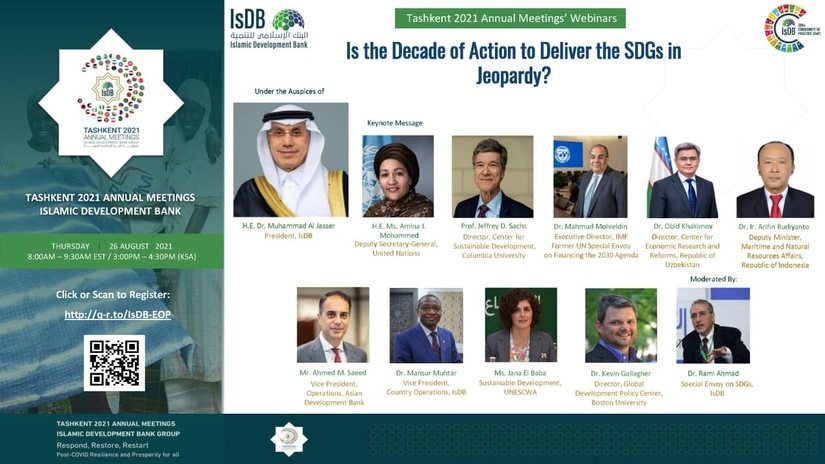
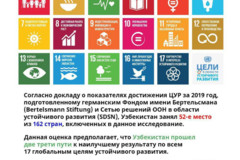
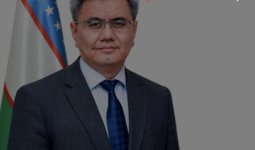
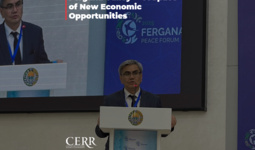
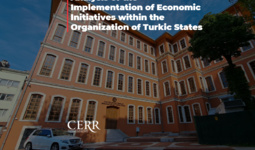
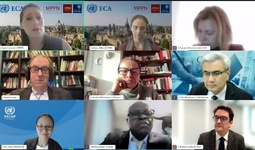
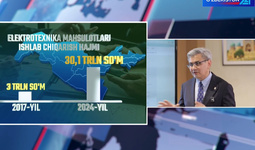
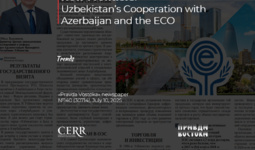













leave a comment